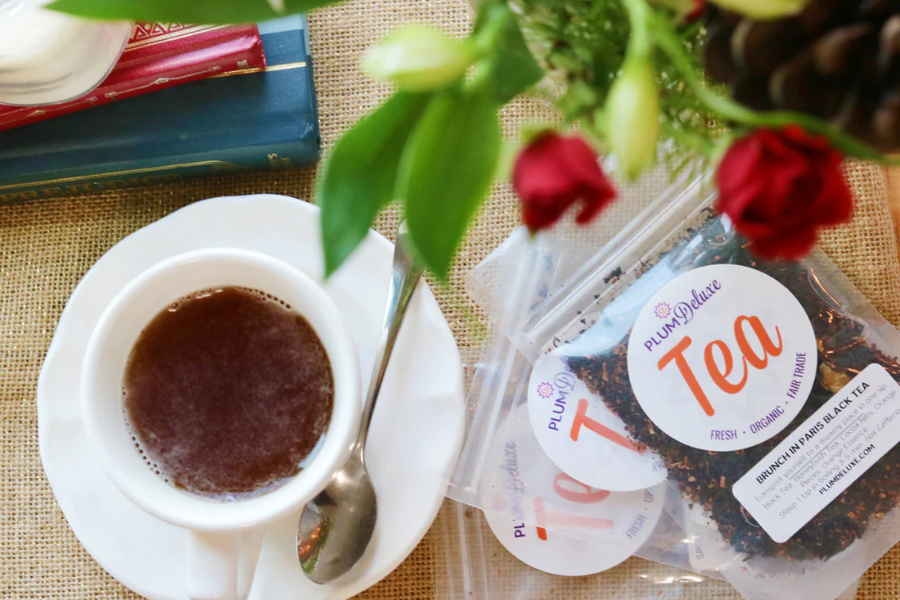Tea is one of the most beloved beverages worldwide, enjoyed for its variety of flavors, aromas, and numerous health benefits. However, like many consumables, tea has a shelf life.
This article delves into the question: Does tea expire? We will explore the factors that affect the shelf life of tea, provide tips for proper storage, and highlight the signs that indicate when tea has gone bad.
Does Tea Expire?
Yes, tea can indeed expire. Most commercially packaged tea bags come with an expiration date, typically around two years from the date of manufacture. However, this expiration date does not necessarily mean that the tea becomes unsafe to consume after that period. Instead, it signifies the time frame in which the tea is expected to retain its optimal flavor and aroma.
Loose leaf teas often have a longer shelf life, frequently lasting a year or more, contingent upon the type and quality of the tea. The degradation of tea over time is influenced by various factors, including how it is stored.
Factors Affecting Shelf Life of Tea
Several key elements can impact how long your tea remains fresh:
- Exposure to Air: Air can cause oxidation, leading to the loss of flavor and aroma in tea. When tea is exposed to air, it can quickly become stale.
- Light: Ultraviolet light can degrade tea, especially if it is stored in a transparent container. Keeping tea in a dark place or in opaque containers can help preserve its quality.
- Moisture: Tea is hygroscopic, meaning it absorbs moisture from the environment. Excess moisture can lead to mold growth and spoilage. Therefore, keeping tea dry is crucial for its longevity.
- Heat: High temperatures can accelerate the degradation of tea. Storing tea in a cool environment will help extend its shelf life.
- Quality of Packaging: The material used in packaging tea can also influence its longevity. For instance, tea bags made of natural fibers or nonwoven fabric tend to absorb moisture, which can lead to a shorter shelf life. In contrast, plastic or nylon tea bags are generally more moisture-resistant and can last longer.
How to Properly Store Tea
Proper storage is essential for maximizing the shelf life of your tea. Here are some practical tips:
- Airtight Containers: Store tea in airtight containers to minimize exposure to air. Glass jars, metal tins, or resealable plastic bags are good options.
- Cool, Dry Place: Keep your tea in a cool, dry environment away from direct sunlight. A pantry or a cupboard is typically ideal.
- Separate Containers for Different Types of Tea: If you enjoy various types of tea, use different containers for each type. This prevents flavor mixing and maintains the integrity of each tea’s unique taste.
- Avoid the Refrigerator: While it may seem tempting to store tea in the fridge or freezer, this can introduce moisture into the container when the tea is taken out. It’s best to keep tea at room temperature.
- Keep Away from Strong Odors: Tea can absorb odors from other foods, such as spices or coffee. Store tea away from strong-smelling items to maintain its natural aroma.
- Handle with Dry Hands: When you handle tea, always use dry hands or spoons. Introducing moisture can lead to spoilage.
Signs That Your Tea Has Expired
How can you tell if your tea is no longer good? Here are some signs of expired tea:
- Loss of Aroma and Flavor: If your tea has lost its fragrant aroma and flavor, it may have expired. Fresh tea should have a rich, inviting scent.
- Stale or Moldy Smell: If you notice a stale or musty odor, this indicates that the tea is past its prime. Any signs of mold or an off-putting smell are clear indicators that the tea is no longer safe to consume.
- Color Changes: If the color of your tea has changed significantly, this could be a sign of spoilage. Fresh tea should retain its original color.
- Insect Infestation: If you find insects in your tea, it’s definitely time to discard it.
How Long Does Tea Last?
The longevity of tea varies depending on the type and how it is stored. Here’s a general guideline for different types of tea:
- Regular Teas (Black, Green, White, Oolong): When stored properly, most regular teas will last between 6 months and 1 year.
- Loose Leaf Tea: Typically, loose leaf tea can last for up to a year when stored correctly. Similar to tea bags, loose leaf tea is sensitive to moisture and air, so proper storage is critical.
- Herbal Teas: Herbal teas usually have a shorter shelf life and might only last 6 to 12 months, depending on their composition.
- Pu-erh Tea: Some types of tea, particularly Pu-erh and aged white teas, can last for several years and may even improve with age.
Do Tea Bags Expire?
Tea bags also come with an expiration date, and they can go bad over time. Generally, tea bags last between 6 to 12 months when stored properly. If they are exposed to moisture, they can spoil more quickly. Always check the expiration date on tea bags before using them to ensure optimal flavor.
Is It Harmful to Drink Expired Tea?
While drinking expired tea isn’t necessarily harmful, it may not provide the same taste or health benefits as fresh tea. Expired tea often tastes stale or flavorless, and it may lack the aroma and richness that characterize high-quality tea. If you are uncertain about the quality of your tea, it is advisable to err on the side of caution and dispose of it.
Conclusion
In summary, while tea does have a best-before date, it is often safe to consume even after this date has passed, provided it has been stored correctly. By following the tips outlined in this article, you can ensure that your tea retains its flavor and nutritional value for as long as possible.
Always be vigilant for signs of spoilage, and don’t hesitate to discard any tea that shows indications of going bad. With proper care, you can enjoy your favorite brews and all the benefits they offer for an extended period. So, the next time you reach for a cup of tea, take a moment to check its freshness, and savor the delightful experience that only a well-preserved tea can provide.
Stay ahead with exclusive insights and breaking news on thedgmnews.


